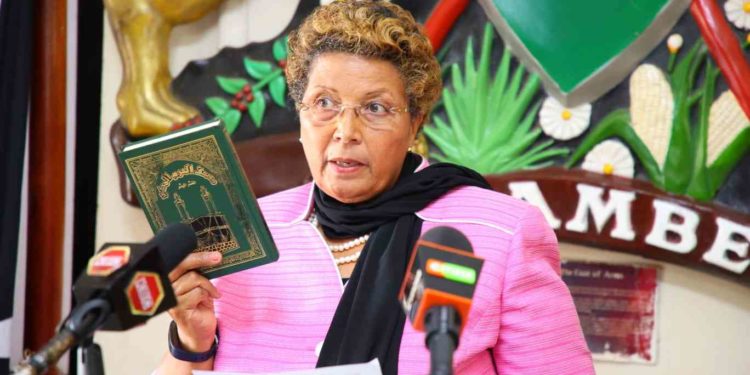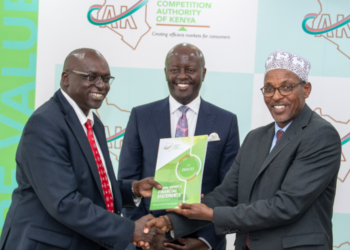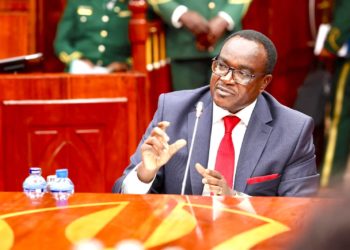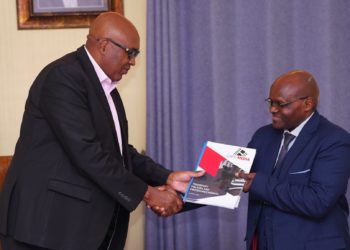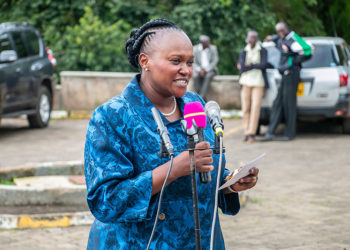Lady Justice Fatuma Sichale has been sworn in as the representative of the Court of Appeal to the Judicial Service Commission (JSC). She was sworn in in a ceremony presided over by Chief Justice Martha Koome at the Supreme Court, replacing outgoing Justice Mohammed Warsame, who completed his second term.
The JSC consists of 11 members headed by the CJ: one Supreme Court judge elected by the judges of the Supreme Court and one Court of Appeal judge elected by the judges of the Court of Appeal.
CJ Koome lauded Justice Sichale’s election to the JSC at a time when the commission is implementing its 2022–2027 strategic plan aimed at establishing a people-centered justice system. “I am certain you will be a valuable team player in the Commission as we work towards the realization of the constitutional mandate of the JSC,” lauded Koome.
During the event on Monday at the Supreme Court, Sichale acknowledged the milestone that has taken four decades in the making. This is since her appointment as District Magistrate 2, 40 years ago.
“Some 40 years ago, I was in this same premises interviewing for the position of District Magistrate 2. I was successful, and I was appointed. That was a significant event in my life then,” she said.
“To be sworn in today as a JSC member representing the Court of Appeal is almost at the pinnacle of one’s career as a judicial officer.” She noted, as she stated, the difference between the two events that have played a major role in the making of her career: being a District Magistrate 2 and a JSC representative member.
“Suffice to state that between the two, there have been 40 years,” the Lady Justice added.
Justice Fatuma went ahead to thank her fellow Appellate Court Judges for voting her into JSC, as she vowed to be diligent in her service.
The JSC consists of 11 members headed by the CJ: one Supreme Court judge elected by the judges of the Supreme Court and one Court of Appeal judge elected by the judges of the Court of Appeal.
Others are a woman and a man elected by the members of the association of judges and magistrates, the Attorney-General, and two advocates (a man and a woman elected by the members of the statutory body responsible for the professional regulation of advocates).
It also includes one person nominated by the Public Service Commission and two members of the public (one woman and one man to represent the public, not being lawyers) appointed by the President with the approval of the National Assembly.


